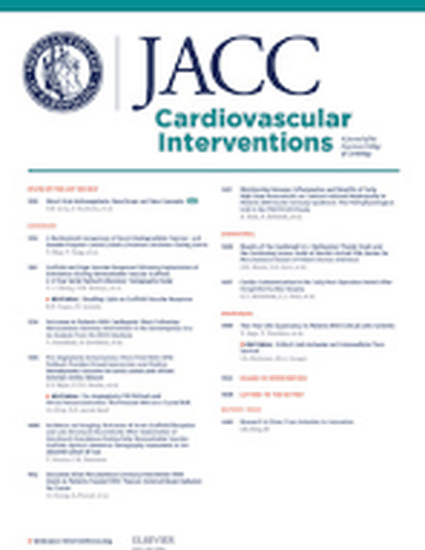
Article
Feasibility of Early Mechanical Support During Mechanical Reperfusion of Acute Myocardial Infarct Cardiogenic Shock
Jacc-cardiovascular Interventions
(2017)
Abstract
Mechanical reperfusion for acute myocardial infarction cardiogenic shock (AMICS) has a class I A indication in both the American and European guidelines (1) . Unfortunately, over the past 20 years, little progress has been made in improving outcomes since the pivotal SHOCK (Should We Emergently Revascularize Occluded Coronaries for Cardiogenic Shock) trial was conducted (2) . The recent Food and Drug Administration approval of the Impella (Abiomed, Danvers, Massachusetts), a percutaneous micro-axial flow mechanical circulatory support (MCS) device, has provided powerful, readily available hemodynamic support during reperfusion therapy of AMICS. Five centers in the metro Detroit area (St. Joseph Mercy Pontiac, William Beaumont Royal Oak, William Beaumont Troy, Henry Ford Detroit, and the Detroit Medical Center) have performed a pilot feasibility analysis to determine whether early routine use of MCS with Impella is possible and to see whether impact on outcomes could be tracked. Between July 1, 2016, and September 26, 2016, the centers agreed to treat all patients with AMICS in a similar, mutually agreed protocol. To date, 15 patients have been treated. The goal of therapy is to initiate hemodynamic support as soon as possible after catheterization laboratory arrival.
Disciplines
Publication Date
March 27, 2017
DOI
10.1016/J.JCIN.2017.01.014
Citation Information
O'Neill W, Basir M, Dixon S, Patel K, Schreiber T, Almany S. Feasibility of Early Mechanical Support During Mechanical Reperfusion of Acute Myocardial Infarct Cardiogenic Shock. JACC Cardiovasc Interv. 2017 Mar 27;10(6):624-625. doi: 10.1016/j.jcin.2017.01.014. PMID: 28335901.
